The COVID-19 pandemic has had an impact on us all, including our feathered friends. Around the world, Bird shelters have been recording more and more cases of Bird rescue.
In North Central Wisconsin, the non-profit organization Raptor Education Group, Inc. reached a new annual record of 1,060 rescued injured Birds in 2020, wrote Sydney Hawkins in a 2021 article for WSAW TV. In Quebec, the Le Nichoir Wild Bird Rehabilitation Centre recorded 60% more Bird admissions this year than previous years, according to CBC News.
Many of us have been seeking comfort in the outdoors – and rescuing Birds in the process. Here are a few tips for keeping your rescued Bird happy, in these times when we have to make do with lockdowns, quarantines, and other restrictions to keep us safe.
PREPARE WHAT’S APPROPRIATE
FOR YOUR BIRD’S SPECIES
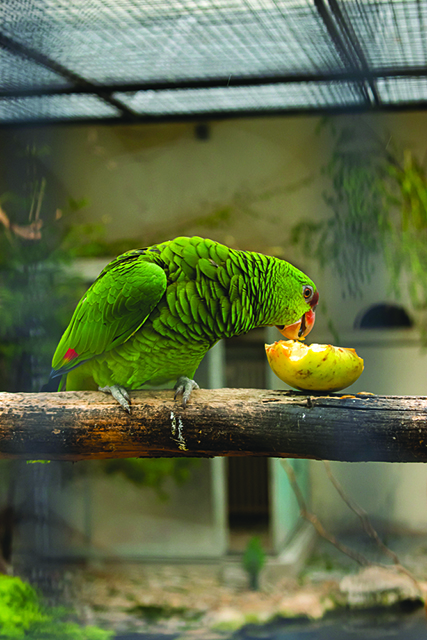
Food, water, and shelter are some of the first things that come to mind when one first considers adopting a rescue. While these apply to Birds as well, it would also be wise to think about the specific species in your care. The more you’ve learned about the kind of Bird your rescue is, the more you’ll be able to tailor their home life to make them happy.
According to Cedar Pet Clinic, most Birds would need food bowls, water bowls, a large cage with a perch a good distance away from their water, cage liners to keep their little home clean, and a private hiding nook in their cage if they want some alone time.
PLAY WITH THEM

The PetPlace website states that some Birds don’t need too much to stay happy. Some species such as parrots, however, require more love and attention than others. Birds can act just like children, eventually acting out if they don’t get what they want.
If your Bird isn’t able to free-fly, it would help to set aside space in your home specifically for play. This could be a room or covered patio where your rescue could fly around all on their own, or a corner of the house with a bunch of toys they might like.
Some birds prefer ropes, balls, and bells, while others thrive in play areas with objects they can climb and perch on.
RECOGNIZE SIGNS OF STRESS
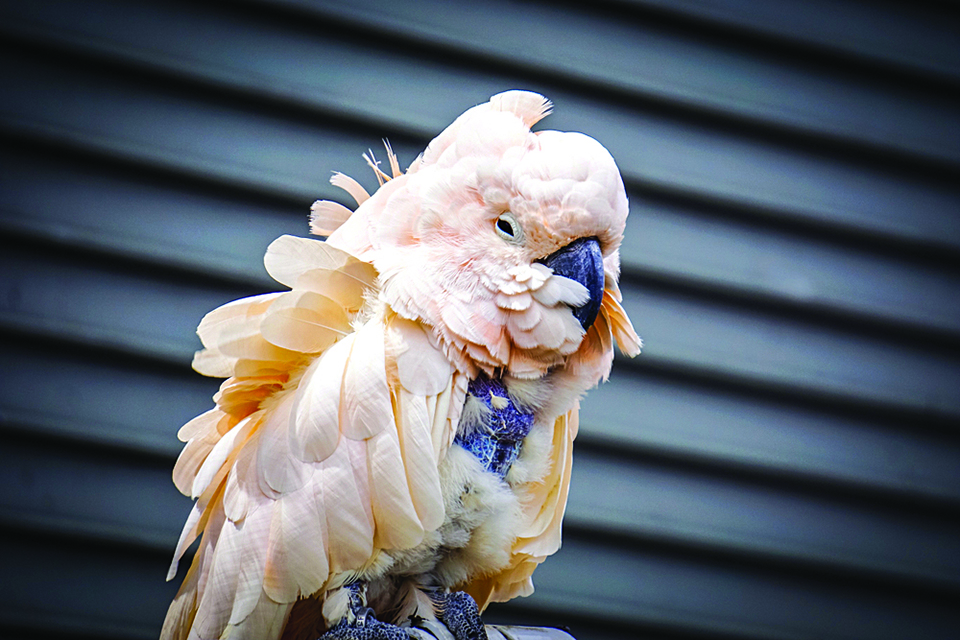
The simplest change in routine, such as having more people in the house due to lockdown, can cause Birds to experience stress. According to a 2019 article by Alyson Kahagen for The Spruce Pets, Birds are particularly sensitive animals who thrive in habit and the familiar.
Stress bars, horizontal lines that show up on a stressed Bird’s feathers, won’t tell you what the Bird is stressed about. However, it’s important to check for stress bars because they indicate
that something in the Bird’s environment is causing stress.
This and other symptoms such as feather picking, self- mutilation, loss of appetite, aggression, fear, boredom,
and repetitive behavior should all be treated as
red flags that might even warrant a trip to the
veterinarian.
TREAT THEIR STRESS
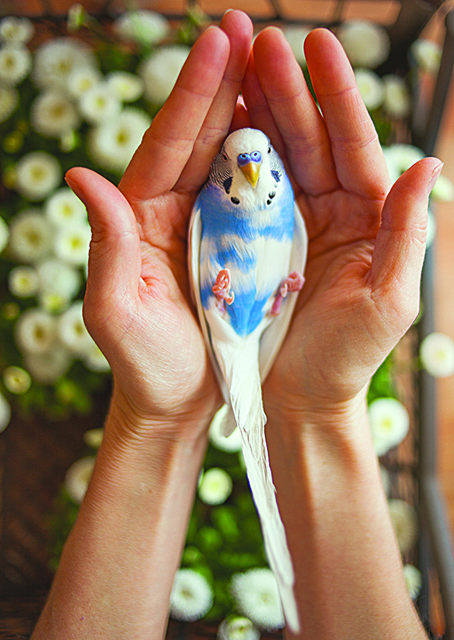
Once you’ve removed the source of stress in your Bird’s environment, their stress symptoms should disappear. If your Bird’s source of stress was noise, treatment could be as simple
as keeping quiet around the house. According to Kuaotunu Bird Rescue, one should always be quiet and calm around injured or ill birds considering they may be recovering from trauma.
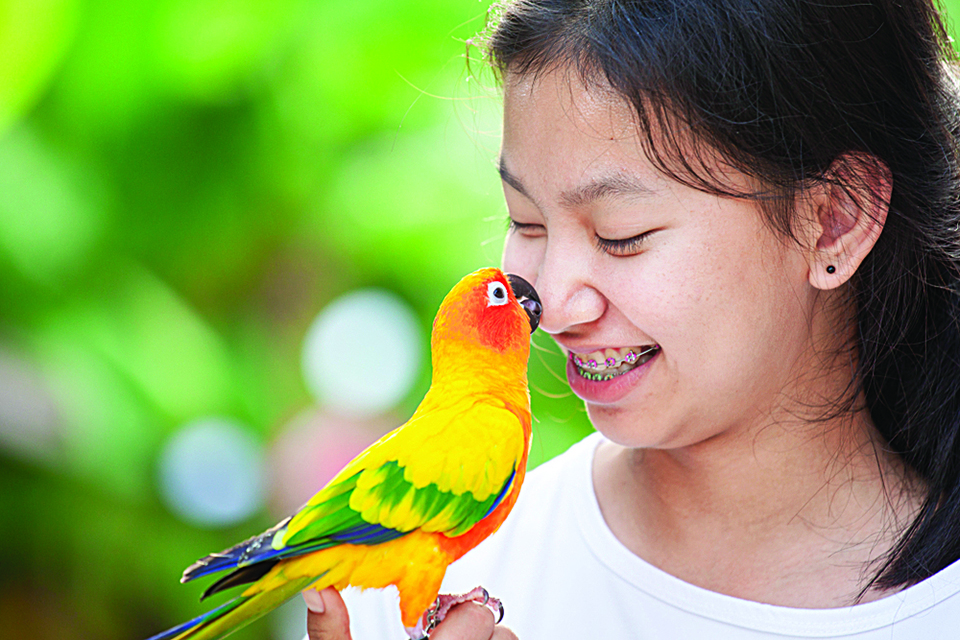
The Spruce Pets suggests providing stressed Birds with puzzle toys to stimulate their minds and allowing Birds time outside of their cage. If your Bird still shows symptoms of stress, a veterinarian might be able to prescribe specific treatments to help them.
KEEP THEM
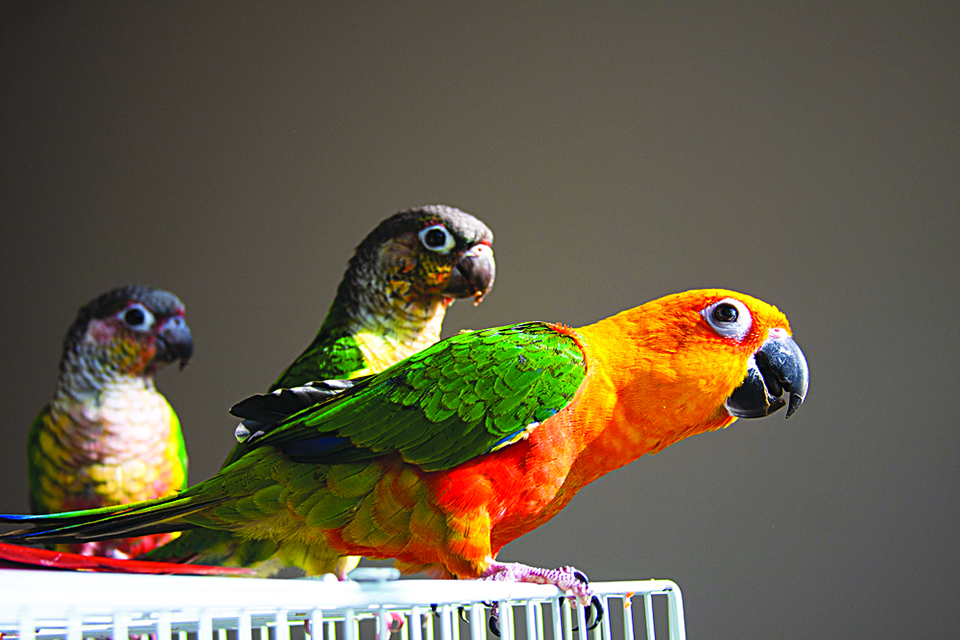
In 2020, Jimmy Nsubuga reported in a Yahoo! News
article that lockdowns had caused more people to give
up their Birds to shelters or set them free because they were distracting or too noisy. Aside from the minor inconveniences that have arisen between Birds and their human families during lockdowns, it’s common for Birds to be given up even without a pandemic because of the expenses associated with caring for them.
To keep a rescued Bird happy, one must be patient and accept them as part of the family – indispensable, cared for, and loved.






